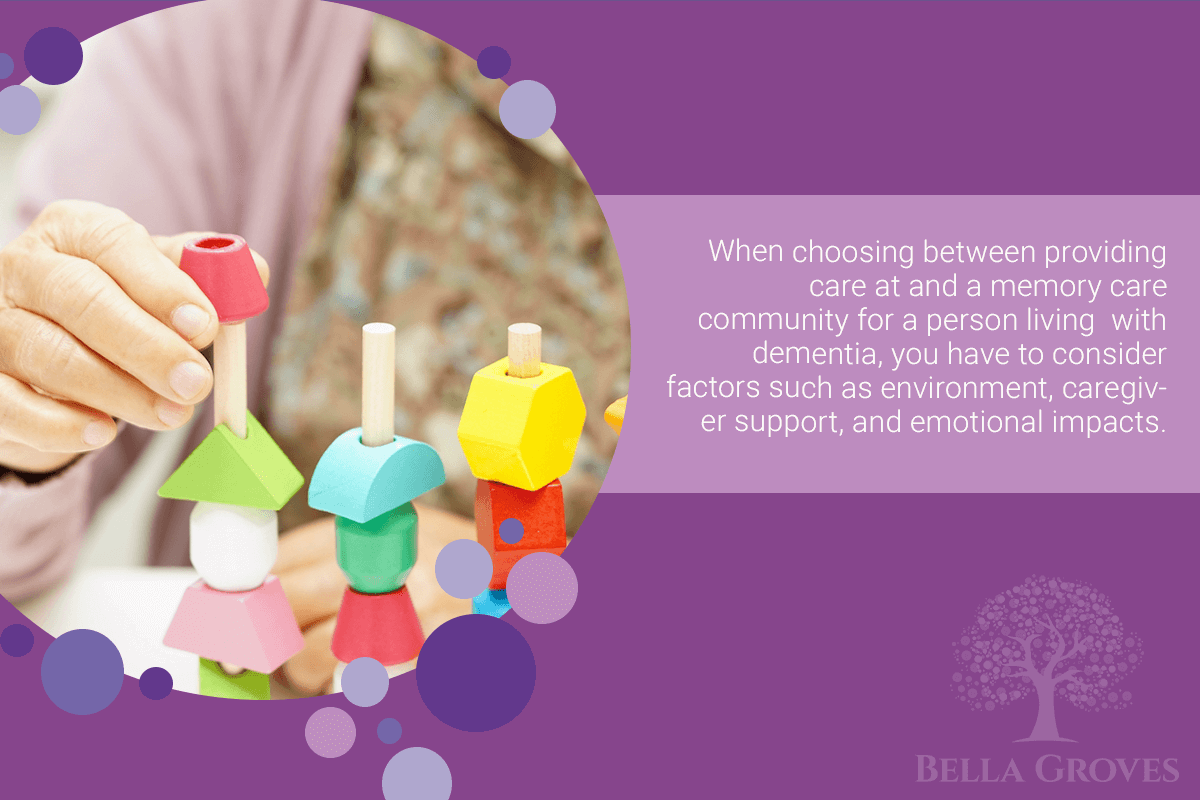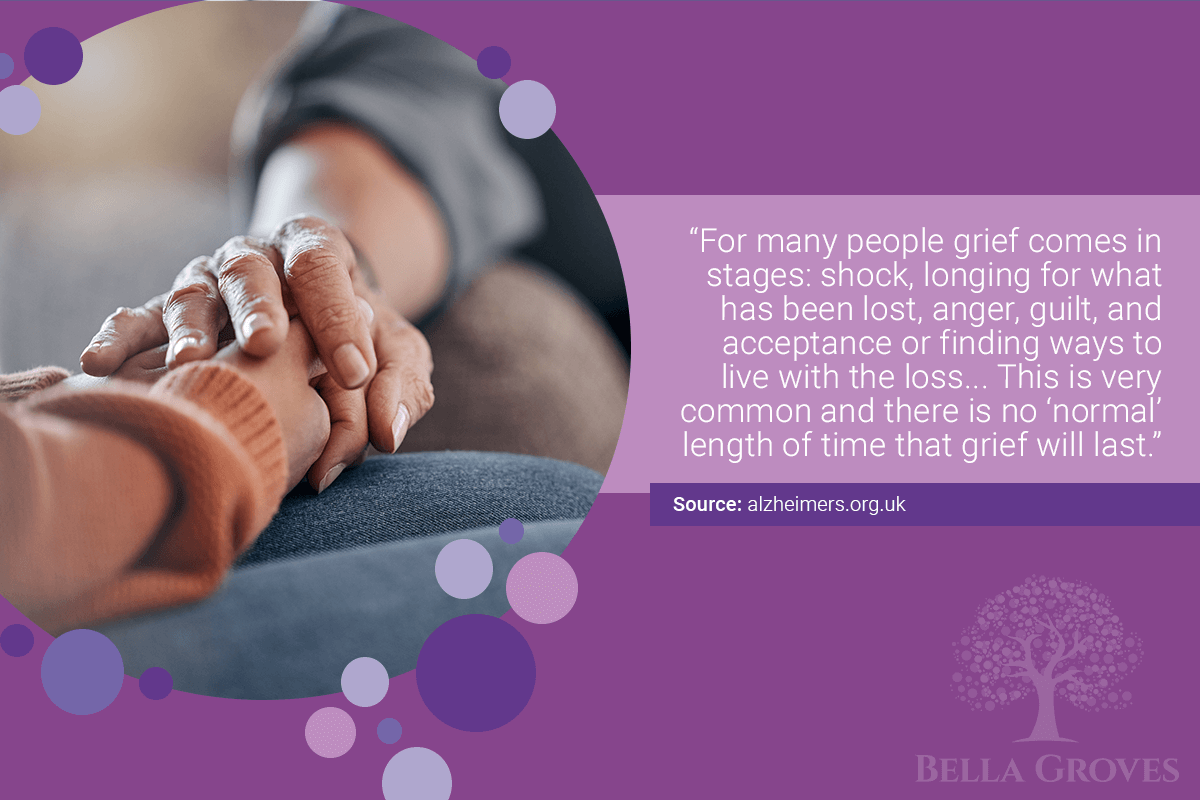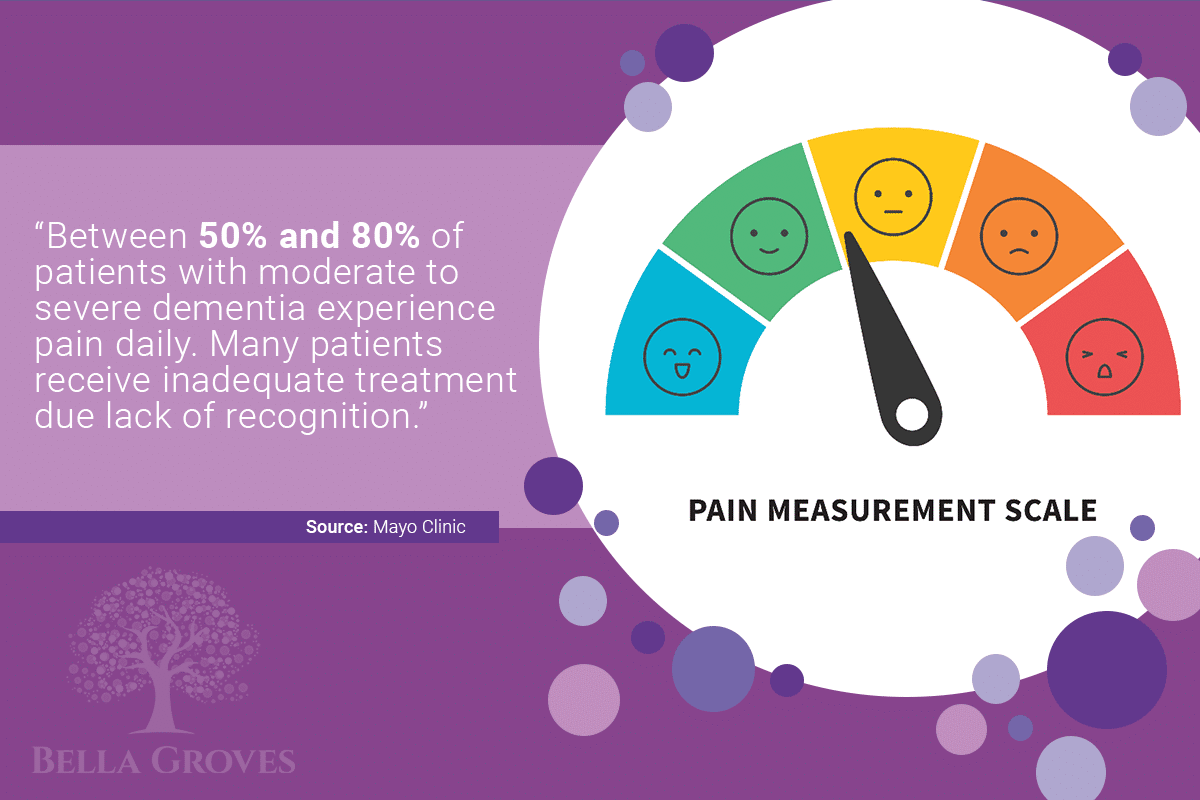
Do Those with Dementia Thrive Better at Home or in a Memory Care Facility?
Navigating the world of dementia care can be overwhelming. When faced with the decision of whether a loved one should remain at home or move to a memory care community, families often grapple with concerns about their loved one’s well-being, safety, and quality of life.
Bella Groves strives to provide resources and support to help families make the best decision possible for themselves. If you’re wondering whether you should provide care for your loved one at home or rely on the supportive services of a memory care facility, we’re sharing the pros and cons of each to help.
Providing Dementia Care at Home
Positive Aspects
Caring for a person living with dementia at home brings a world of benefits. Imagine the comfort and peace that comes from being in a familiar space. Those cherished walls, the rooms filled with memories, and the constant presence of family can work wonders in providing a secure and stable environment, melting away anxiety and agitation.
The beauty of home care is it allows for customization that truly respects the individual’s needs and preferences, with the added bonus of establishing comforting routines that offer reassurance and stability.
And let’s not forget the fun part! Being at home opens up a treasure chest of activities that can be both meaningful and enjoyable, perfectly aligned with your loved one’s interests. This not only enhances their day-to-day life but also brings joy into the caregiving experience.
Things to Consider
However, caring for a person living with dementia at home also brings its own set of hurdles. It’s not just about the day-to-day, but the physical and emotional drain on family care partners can be immense. Imagine being on call 24/7 — it’s exhausting and can lead to burnout, stress, and health problems.
Then there’s the matter of safety. Most homes aren’t designed with dementia challenges in mind. Without the right modifications, risks like falls, wandering, and difficulty moving around can turn into serious dangers.
And let’s not forget the challenge of medical care. Dementia patients need specialized attention that goes beyond what family members can offer. Without professional support, managing health complications at home can become a daunting task.
Care Offered in a Memory Care Community
Positive Aspects
Memory care communities are designed to cater to the needs of individuals with dementia. One of the primary benefits is the availability of specialized staff trained in dementia care. These professionals are equipped to handle the unique challenges posed by memory-related conditions, providing high-quality care and support.
These communities also offer a structured environment that can significantly benefit those living with dementia. Structured routines, therapeutic activities, and social interaction opportunities can help stimulate cognitive function and improve overall well-being. Additionally, memory care communities are equipped with safety features tailored to dementia, such as secured areas and emergency response systems.
Memory care communities also significantly relieve the caregiving burden on family members. With professionals handling the day-to-day care, family members can focus on nurturing their relationship with their loved ones and spending quality time together without the stress of full-time caregiving responsibilities.
Things to Consider
Not all memory care communities are created equal. For example, some have a higher staff-to-resident ratio which means team members spend less time with each individual.
At Bella Groves, with higher staffing ratios than the vast majority of memory care facilities, a 13-week dementia orientation for all staff (vs. the required 4-hours of most places), and local owners (vs. far-away corporate offices), we strive to make sure every individual and family feels confident and comfortable with their memory care decision.
Transitioning a person living with dementia to a memory care facility can also be an emotional journey. Read our blog, Preparing for a Loved One’s Move to a Memory Care Community, to learn more.
Factors to Consider When Choosing Care
Safety
Ensuring safety is key when caring for someone with dementia. It’s vital to take a good look around the home and spot anything that could be a risk. Think about making some changes, like putting in grab bars, getting rid of anything that could cause a trip or fall, and keeping anything dangerous out of reach. These steps can truly make a difference in keeping your loved one safe.
If safety at home becomes a concern, a memory care facility may provide the peace of mind needed.
Family Well-being
Taking care of a loved one with dementia at home can really test the strength of family bonds, not to mention the toll it takes on the caregiver’s own health—both physical and mental. It’s crucial to remember that the well-being of the caregiver and other family members matters just as much.
Consider memory care communities as an option to ease the caregiving load. These communities allow you to cherish and nurture your relationship with your loved one while also taking care of your own well-being. Nevertheless, keeping the emotional connection strong through regular visits is key to fulfilling their emotional needs.
Empowering Caregivers with Knowledge
Navigating the complexities of dementia care is undoubtedly challenging, but you don’t have to do it alone. Whether you choose home care or a memory care community, the most important thing is that your loved one receives the best possible care and support.
Remember, you’re not just a caregiver—you’re an advocate, a protector, and above all, a loving family member. Your dedication and compassion make a world of difference in the life of your loved one. If you need further guidance or support, don’t hesitate to reach out to Bella Groves today to learn more about our memory care services in San Antonio.


